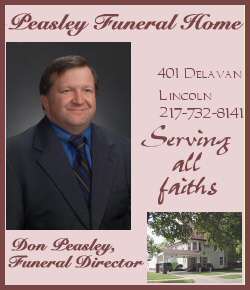|
The word is taken from the name of Dr.
Franz Mesmer. We'll get to that part in a minute.
Franz Mesmer was born in Switzerland
in 1734. As a doctor, he associated with some pretty notable people,
such as Mozart, King Louis XVI, Dr. Joseph Guillotin and Ben
Franklin, although not always in ways that benefited him.
Dr. Mesmer practiced what he called
"animal magnetism," which caused his patients to go into a
trancelike state. Today we know it by another name.
Dr. Mesmer was also known for the
glass harmonica that he used in his therapy sessions with his
patients. It was Ben Franklin, not Mesmer, who invented the glass
harmonica. Mesmer even let his friend Mozart play his own harmonica,
starting in 1773.
As the headline of this story says,
Dr. Mesmer invented a new word. Or should we say, he had a word
named after him. Unlike Dr. Guillotin, Dr. Mesmer did not mind that
his last name became part of the word for which he is remembered.

The word that is named after Dr.
Franz Mesmer is "mesmerize."
What makes it even more interesting,
though, is that this mesmerism, or animal magnetism, was actually
the forerunner to hypnotism as therapy. The full definition,
according to Webster's, is "to hypnotize; especially to spellbind or
fascinate."
Successful doctor or snake oil
salesman?
Dr. Mesmer was so good at convincing
patients that he could cure them that it was unclear whether it was
his animal magnetism or his salesmanship that cured them. There may
have been a "placebo effect." Remember, this was during the 1700s --
a period when leeches were commonly used to bleed patients of
whatever ailed them.
[to top of second column
in this article] |

King Louis XVI (that would be King
Louis the 16th, if you're keeping score at home) offered Dr. Mesmer
a lifetime pension if he would sign a contract to stay and work in
Paris. Soon after Mesmer rejected the offer, the king appointed a
special committee to investigate him. The committee included Dr.
Guillotin, Antoine Lavoisier (who, along with Louis XVI, later
became a "customer" of Dr. Guillotin) and Ben Franklin.
The committee's negative report on
Dr. Mesmer essentially ended his career, and he was exiled to his
native Switzerland. During his career, the popular Dr. Mesmer had
many followers, and he expanded his practice throughout the major
cities of Europe by teaching his methods to his followers.
Dr. Mesmer is considered by many to
be the father of hypnotism. Two of his followers, James Braid and
the Marquis de Puysegur, later put it into practice.
In 1815, Dr. Mesmer died at the age
of 81. The priest, at Mesmer's request, played the glass harmonica
at his funeral.
[Paul Niemann]
Paul Niemann is the author of Invention Mysteries. He may be
reached at niemann7@aol.com.
© Copyright Paul Niemann 2005

 |